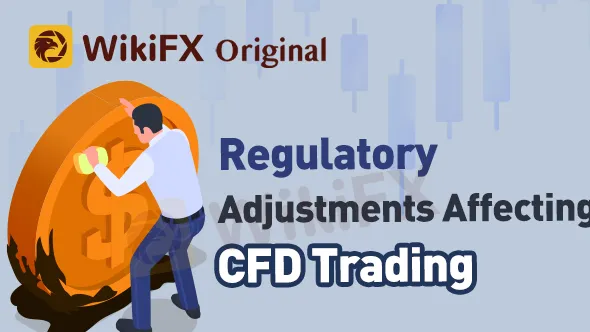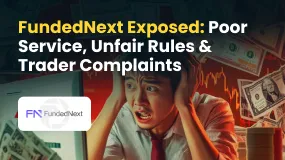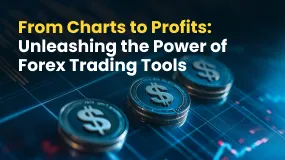简体中文
繁體中文
English
Pусский
日本語
ภาษาไทย
Tiếng Việt
Bahasa Indonesia
Español
हिन्दी
Filippiiniläinen
Français
Deutsch
Português
Türkçe
한국어
العربية
Regulatory Adjustments Affecting CFD Trading
Abstract:This article covers recent regulatory changes in CFD trading, such as leverage restrictions, negative balance protection, enhanced disclosure requirements, and restrictions on promotional activities.

In recent years, CFD (Contract for Difference) trading has gained immense popularity among traders due to its flexibility and potential for high returns. However, the regulatory landscape governing CFD trading is continuously evolving. This article aims to provide readers with a comprehensive understanding of the recent regulatory developments that impact CFD trading and equip them with vital information to navigate the changing environment successfully.
Before exploring the regulatory adjustments, it is essential to grasp the fundamental concepts of CFD trading. By trading CFDs, which are derivative products, traders can speculate on the price fluctuations of various financial instruments like stocks, commodities, indices, and currencies without owning the underlying assets.
One of the significant reforms made by regulatory bodies is the imposition of leverage restrictions. Previously, traders had access to substantial leverage ratios, which allowed for potentially higher gains and exposed them to significant losses. The new regulations aim to protect traders by regulating leverage and requiring traders to have adequate capital and experience before accessing higher leverage ratios.
To safeguard traders from excessive losses, regulatory authorities have mandated the implementation of negative balance protection. This ensures traders cannot lose more money than their initial investment, even in highly volatile markets.
Furthermore, regulatory developments have emphasized the importance of transparent and comprehensive disclosure regarding the risks associated with CFD trading. Brokers are now obligated to disclose all relevant risks, including the likelihood of clients incurring losses when trading CFDs.
In an effort to prevent misleading promotions that may entice inexperienced traders, certain regulators have imposed restrictions on the marketing and promotional activities of CFD providers.
Overall, these regulatory changes reflect a concerted effort by global regulatory organizations to strengthen monitoring and protect consumers engaging in CFD trading. The regulatory landscape aims to create a safer trading environment for CFD traders by reducing the risks associated with high leverage and promoting transparency.
Establishing an appropriate equilibrium in the realm of CFD trading regulations presents a formidable challenge, as it requires prioritizing investor protection, promoting transparent and equitable trading practices, and facilitating effective risk management, all while preserving traders' freedom to choose their desired level of risk.
Attaining this delicate balance is instrumental in cultivating a robust and sustainable CFD trading ecosystem, empowering traders to make well-informed decisions while mitigating potential financial harm. By implementing a meticulously crafted regulatory framework, authorities can foster an environment that encourages responsible trading and instils investor confidence in the CFD market.
Hence, attaining a nuanced equilibrium in CFD trading regulations is paramount for fostering a secure and transparent trading environment.

WikiFX is a valuable resource for traders seeking information and insights regarding regulatory changes. As regulations surrounding the financial markets, including CFD trading, are continuously evolving, it becomes crucial for traders to stay updated and well-informed. WikiFX is a comprehensive platform offering reliable and up-to-date information about regulated brokers, their compliance status, and user reviews. This enables traders to assess the regulatory compliance of brokers and make informed decisions while navigating the dynamic regulatory landscape. With its user-friendly interface and extensive database, WikiFX empowers traders by providing a centralized hub of information that simplifies the process of understanding and adapting to regulatory changes. By leveraging WikiFX as a trusted resource, traders can confidently navigate the complexities of regulatory adjustments, ensuring compliance and mitigating potential risks.

Disclaimer:
The views in this article only represent the author's personal views, and do not constitute investment advice on this platform. This platform does not guarantee the accuracy, completeness and timeliness of the information in the article, and will not be liable for any loss caused by the use of or reliance on the information in the article.
Read more
Before You Trade with Quest: 6 Warning Signs to Know
The Forex market is a jungle full of complex trades, high risks, and unpredictable moves. Without the right knowledge, you’re an easy target. In this environment, information is your only weapon. Many scam brokers are out there, ready to take advantage of uninformed traders. In this article, you will learn about another unlicensed broker: Quest.

FundedNext Exposed: Poor Service, Unfair Rules & Trader Complaints
FundedNext has been facing investor ire on forex broker review platforms for the numerous instances of foul play it has been part of. Investors face constant withdrawal issues, unfair and fake rules on trading, and several other issues. All these contribute to scams.

From Charts to Profits: Unleashing the Power of Forex Trading Tools
Want in-depth insights into the forex trading market so that you can make an informed investment call? Start unleashing the power of forex trading tools. These tools, comprising both fundamental analysis and technical charts, lay the foundation for successful forex outcomes.

FCA Publishes New Warning List! Check It Now to Stay Safe
FRAUD ALERT! – All investors and traders should be careful. The UK’s financial regulator, the Financial Conduct Authority (FCA), has warned people about fake brokers that are working without a license. These scam brokers take people’s money and disappear. The FCA shares a list of these fake brokers every day to help people stay safe. Checkout the List below to Stay Safe.
WikiFX Broker
Latest News
Forex Hedging Strategies - Calming You Amid Market Chaos
Key Events This Week: ISM, Trade Balance And More Earnings
What Is Forex Currency Trading? Explained Simply
A Beginner’s Guide to Trading Forex During News Releases
Ultima Markets enters the UK and gains the FCA license
LSEG Announces £1 Billion Share Buyback Program
SEC Lawsuit Targets Real Estate Fraud Scheme by Joseph Nantomah
XS.com Broker Partnership Expands Liquidity with Centroid Integration
ASIC Regulated Forex Brokers: Why Licensing Still Matters in 2025
FCA Publishes New Warning List! Check It Now to Stay Safe
Currency Calculator


